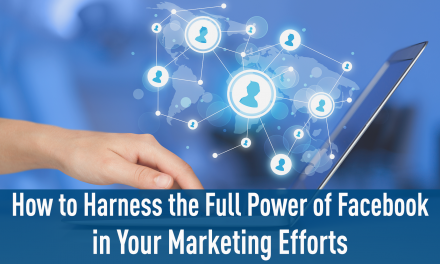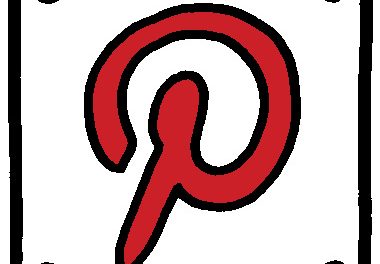Simplicity is the ultimate satisfaction — Leonardo da Vinci
I wonder if you’ve noticed that the longest running, most successful and memorable pieces of marketing are usually simple.
“This Bud’s For You.”
“Don’t leave home without it.”
“The Ultimate Driving Machine.”
Generally, winning campaigns are one single, very simple idea. Just Do It. sums up Nike’s brand message in three words.
I know what you’re thinking. What does this have to do with quiz landers… Well, everything. When a marketer aims for an elegant solution, dollars usually follow.
Great. But what does that mean, an elegant solution…
It means simplicity.
Aim to craft the simplest version of anything you test in your funnel.
Avoid The Multiple Product “Multiple Choice” That Confuses Quiz Takers, Decreases Trust, And Sees Hot Buyers Click Away.
The quickest and easiest way to test your quiz lander for simplicity is to ask this question:
How many different products is this single quiz promoting?
If the answer is anything other than one…
Then the funnel likely loses continuity and is seen by the prospect as less trustworthy, meaning fewer people click through to watch the sales video.
An example would be when a person clicks an FB ad to find out more about ‘instantly attracting men’, but ends up watching a ‘save your marriage’ video. That’s where they exit. They don’t swoop back around and take the quiz again.
Multiple product quizzes are tough to pull off. The flip side is they have a big pay off, so it’s up to you.
Crafting The Type Of Questions That People Want To Answer And Then Click To Watch The VSL
Some of you will have read Thinking, Fast & Slow by Nobel Prize winner Daniel Kahneman. In the book, Kahneman shows us that our brain is lazy.
More precisely, the brain does everything it can to preserve energy. And the brain itself drains more power out of gluten in our body than almost anything else. When we think slow, long, and hard, the brain throws up resistance, you have to drop back into normal ‘fast thinking’ at some point.
The brain does it’s best to keep us in fast-thinking mode because it takes up far less energy to make decisions on instinct than reason. That’s heuristics, which we’ll get into shortly.
A Great Marketing Quiz Is The Opposite Of The Times Cryptic Crossword.
A marketing quiz is a dead simple quiz.
The questions exist to qualify and entice the prospect to keep answering and then click continue to watch the video.
When first creating a quiz, most of us stumble into the ‘curse of knowledge’ trap. We assume everyone else knows what we know. They don’t. Often it can be brand new information, so they need a simple explanation and steps.
Each of your quiz takers is bringing their own perspective (their world) to the question.
At first, you may even think the questions are too simple. Don’t worry, sometimes we ask simple questions because the answer is simple.
The only question, then, is how do we use this knowledge to make a simple quiz that keeps people answering questions and wanting to click through? — The first thing we do is delete any 26-word questions. Far too much brain power involved.
Remember, what makes this an elegant technique is its simplicity. Our goal is to keep prospects in ‘fast-thinking mode’ by creating questions simple enough that their answers are heuristic based.
Okay, heuristics. Heuristics are efficient rules. Over the years, you develop routines, rituals, and habits. You can think of them all as contributors to your set of efficient rules, or heuristics.
Heuristics are what you’re thinking; which can be different from what you are doing or saying.
Heuristics save us time. Imagine you just ate the worst pizza ever, your stomach is in knots, you’re gonna barf… And by the way, that’s the only bad pizza you’ve ever had in your life, maybe you’ve eaten thousands of pizzas, but just this one has been bad, and so…
A week later, your buddy asks if you wanna go eat pizza. The first thought in your mind suggests that you avoid pizza. In fact, forget the last two decades and two thousand slices of tasty pizza and focus on what recently happened. And make your decision based on that one incident because it was recent. And because you don’t have to think. The auto-pilot takes you back to your most recent memory of pizza. If your most recent memory of pizza is a good one, then you’d probably say yes to eating pizza again.
Where Can I See Examples Of Other People’s Quizzes
I found the best Facebook Ad research or spy tool for under $100: Ad-Genius. Ad-Genius is an entry-level software, it serves the research purpose without breaking the bank. The monthly fees on more hi-tech spy tools start at $500 per month.
Meanwhile, back to Ad-Genius…
To get results, you simply add your keywords into the search bar, set the parameters (like how far back in time you want to go) and then press search. That’s it.
When the results come in and you’ve found what you’re looking for, there’s generally a link to the landing pages used in association with that FB ad. Go check them out. If it’s a quiz. Make a note of the questions. Keep taking the quiz using a combination and random answers. See what happens. Of course, one thing, and one thing only, should ever happen when someone takes a marketing quiz…
They get qualified to go on to the page you want them to see, and, ultimately, a cure to their problem.
This is a non-affiliate link to the Ad-Genius site.
The Questions Have To Qualify The Prospects So The Target Market Traffic Gets To The Offer
To qualify someone as your ideal prospect in a quiz, you pretty much have to ask them if they want the big-end benefit your sales materials are promising.
That question could look something like this:
You’re ready for someone special to enter your life…
- Yes
- No
- Maybe
- Unsure
This example question is straight-forward. Maybe even too simple?
What if I said that could be the single most important question you ask a prospect. You don’t have to believe me, but you should.
The question is, as you guessed, a statement. A statement of intent from the marketer sharing the message to the prospect’s core emotion. “You’re ready” is positive, it’s assumed you are ready. And that’s a heck of a lot different from asking someone if they are ready. Most people never feel ready.
The point is almost every prospect answers the question with “yes.” And then moves on, a step closer to the VSL.
When you qualify people through your ads, and then the quiz questions, what you’re doing is bringing in hot leads and hungry buyers. And hot leads go on to convert like gangbusters.




